By Uran Kalakulla
Part Thirty-Eight
Nazism and Communism
Memorie.al / Nazism lasted 12 years, while Stalinism lasted twice as long. In addition to many common characteristics, there are many differences between them. The hypocrisy and demagogy of Stalinism was of a more subtle nature, which was not based on a program that was openly barbaric, like Hitler’s, but on a socialist, progressive, scientific and popular ideology, in the eyes of the workers; an ideology that was like a convenient and comfortable curtain to lie to the working class, to lull the sharpness of intellectuals and rivals in the struggle for power.
One of the consequences of this peculiarity of Stalinism is that the entire Soviet people, its best, capable, hardworking and honest representatives, suffered the most terrible blow. At least 10-15 million Soviets lost their lives in the torture chambers of the KGB, martyred or executed, as well as in the gulag camps and others like them, camps where it was forbidden to correspond (in fact, they were prototypes of the Nazi death camps); in the mines in the ice of Norilsk and Vorkuta, where people died from cold, hunger, from crushing work in countless construction sites, in the exploitation of forests, in the opening of canals and during transportation in leaded wagons, or in the flooded barns of the death ships.
Continued from the previous issue
Intuition, ridicule and paranormal phenomena
Intuition, as is known, is one of the “faculties”, as important as it is interesting, of human intelligence. There is a whole philosophy on intuitionism, created by the outstanding French philosopher, Henri Bergson, winner of the Nobel Prize for Literature (1928). Especially in his work, “Philosophical Intuition”, to put it briefly and in my own words, intuition unites the advantages of instinct and intelligence. Otherwise, through analysis we move around things or concepts that are separate from each other, while with intuition we enter the essence of truth.
I have seen and experienced this Bergsonian truth almost always in the bitter reality of prison, where factual data, due to the almost complete lack of information, that is, real facts, forced you not to rely heavily on the aforementioned analysis (even more so when the information was incomplete or false), but on the institution. And the result was often amazing. In this way, we often managed to anticipate events that really happened.
For example, when on the outer horizon there were thunders that warned of “thunderstorms” for the regime in power, we understood it, we felt it only from the somewhat gentle behavior of the command towards us. Just as when the event calmed down, the dungeons and the wood began. Then it was clear that the regime had put it in danger that turn too.
I can give many examples of the intuition of the prison even before I was there. Thus, as the old people, who had the misfortune to experience the horrors of the Vloçisht prison camp, told me, during 1949, while the war was raging between the Greek partisans of Zachariadis and Markos, and the forces of the legitimate Greek government, in Gramoz and Vict, the possibility of an intervention by these latter forces in Albania, the prisoners understood – even though they had no information (hermetically isolated as we were), – from the very gentle behavior of the command executioners, who went as far as servile flattery, towards the convicts.
And when this danger had passed for the regime of Enver Hoxha, they felt it again when they noticed that violence and torture became even more severe than before. Such 180-degree turns are basic features of vile, characterless beings. During the proceedings of the 8th congress of the PPSh, through newspaper photos, and especially the then magazine “YIli” we, with intuition, just by carefully looking at the frown on Mehmet Shehu’s face, if not his murder or imminent suicide, at least understood the inevitable downfall.
Likewise, in general, by carefully reading “between the lines” of party newspapers, we intuited the truth that was trying to be hidden in those articles. It is very interesting in this context, another fact, which, although not directly related to intuition, made us not only understand that it was not happening outside the prison, that is, in the high governmental and party spheres, but also to predict the consequences of those events. It was strange how news or factual data reached our ears, word of mouth after word, about what was happening in the Central Committee of the Party or at the head of the government.
Well, not the newspapers that did not talk about such things but, about them, a grave silence was maintained, of course, even in the party and government environments, very close to the top of the pyramid, let alone in the peripheral environments. Where and how did such news, which time completely confirmed, come to us? This is a mystery that I still cannot explain. Another wonder were the predictions that occurred in prison, through the interpretation of dreams, especially of some special individuals. I remember that in one of the rooms I spent in Burrel prison, we also had a young boy from Vlora.
His name was Qemal Demiri, about twenty years old. He was of average height, a little dark-skinned, but very charming in behavior and attitude, with a very pleasant humor. He was a very good, honest, intelligent boy, one of the best boys I have seen in prisons and camps. Although with an incomplete secondary education, if I am not mistaken, he had willingly learned French quite well and was constantly reading. He had been convicted of an escape attempt and it seems that they had brought him to Burrel, because he had stood out as brave and unyielding, among his friends of his age.
And like many of his fellow citizens, he was an ardent patriot, without a doubt. Oh, how we were filled with laughter when he especially imitated Mao Zedong, when the latter was on the high tribune and below, far below his feet, the misery of his fanatics, militants or Red Guards, was blackening, Qemal imitated Mao supposedly in Chinese, with a single, prolonged exclamation, which strongly resembled the bellowing of an ox or a calf, “muuuwe”, which was to be understood as a greeting from Chairman Mao.
And after that, the response of the mass of dangerous robbers, below, with a chorus that very much resembled the barking of a pack of hunting dogs, when the hunter gathers them and invites them to follow him on his way: “Aauauauau”! And before the charming Qemal started imitating the Chinese communist leader, he would put on a turban, made from his own towel rolled up like a drum that would make you gasp without even making a sound, just by looking at it. Thus, for us, Mao’s “glory from God” would become a stage play.
One morning, as soon as he woke up, and it was still dark, because it was winter, as soon as he got dressed and made his bed, Qemal called out to us to listen, that he had seen an interesting dream. And we listened carefully. He had seen in the sky a large, round, lemon-yellow moon, which suddenly collapsed and fell into a deep, dark abyss. According to Qemal, the moon was a head of state, for sure, and the prominent yellow color would probably have something to do with China. And then he concluded: “Brothers, it seems that Mao ate the goose’s neck and took the evil from us”!
Only a few days passed and the official news of his death was announced! Thus, through dreams, many people there have predicted in time the death of Stalin, Zhou Enlai, and Tito, Enver and other communist hierarchs or other important political events, national or international. Is it possible that dreams are also a product of the subconscious, which may have some connection with intuition? I don’t know, experts in these spiritualistic problems can explain this.
The torture of the loudspeaker
In the context of “modernism”, in Burrel prison, sometime during the last years of my imprisonment, the command installed a loudspeaker in each of our rooms. It was necessarily connected to the command radio, and this radio was fixed only to the Radio Tirana station. Was this device only a loudspeaker? Did it perhaps also have a dual function? Thus, it gave the waves of Radio Tirana to our ears, of course only those that could serve for our “re-education”, but it could also receive the waves of our mouths, when we spoke against the party of popular power and tried to create some political organization among us, according to their sick mind.
In a word, that loudspeaker had at the same time the duty of the prison commissioner and that of the operative (of the microcopy). How do you say, had the Sigurimi comrades become so generous? Did they really care about our “re-education” and “entertainment”? Damn it, the loudspeaker in the room I was in, when it was first installed, was right above the head of the bed I was sleeping on. So, whether I wanted to or not, I was forced to listen to it. Is there anything more annoying than having to listen to the blabbering of a talkative radio station that never tires of blabbering on about the same nonsense that had come to our noses?
What program was scheduled for us? Or rather, what programs were we worthy of listening to? This was what “Her Highness,” the command, had scheduled. First, we had to listen to the news of the day, when that announcer, who was blaring like a gong in the heat of the summer, never stopped extolling the achievements, successes, and miracles that the party and government were doing in building socialism and the welfare of the people! Secondly, there were political topics, which I don’t know where the opinions and comments changed after them. Thirdly, some speech or article by the great and unattainable, comrade Enver, especially those repeated analyses of his against imperialism and social-imperialism.
Then came the turn of the Yugoslav Titoists, the Greek monarchy-fascists, the Italian neo-fascists, and the German revanchists. And so on, without end. It was interesting to note that in all this series of sworn enemies of our country, who thought of nothing else but how to overthrow our so beloved popular power, France was never mentioned. How the hell? This France, was not part of either imperialism or social-imperialism, that is, of neither of the two great anti-Albanian blocs, nor even of the third bloc headed by us, India, Egypt, and what else, where, if I’m not mistaken, China and, surprisingly, Tito’s Yugoslavia were also included? And wasn’t the latter an agent of the two superpowers? Come on, find out about this scoundrel then!
We were allowed to find out how things were going in such and such a cooperative, how the peasants worked there with all joy and happiness, what a good man the chairman was, let alone the party secretary (there was no mention of the local operative, of course), what pledges the workers in the fields and livestock had made, in honor of such and such a party congress, where they would go with… full hands (but in reality increasingly with empty stomachs). And so, thump-thump-thump!
We could also hear some chronicle about the glorious work of the miners. How glorious that work was, we knew very well, because we had among us those who had tried it very well in Bulqiza, years and years ago and, now in Spaç and in Qafë-Bari! We had the miner among us, crippled, beaten and crushed, re-convicted. We could also hear some “heroic” act of such and such a platoon or such a border soldier, who, with the vigilance of the party in his soul, his eyes wide open, without sleeping day or night, had caught some enemies who had tried to cross the border to go to enemy countries.
Why the hell did that soldier bastard not let the enemy go to the enemy, but either killed him on the spot, or handcuffed him and brought him there to us, after they had “softened” him with kicks and punches and had teleported him for months to the interrogators, to the torturers? Even keeping the enemy with bread? Where the hell was the benefit?
Or did they care that this enemy would go and become an American Marine and then come on an aircraft carrier and attack the happiest country in the world, which was building the greatest happiness in the world, Albanian socialism?! Well, we, the comrades of this new enemy, who would soon come among us, did not understand this logic well before, to squeeze us even worse into that little piece of land we had.
But could we listen to a program for days with a somewhat too ambitious title: “The Heroism of Our People through the Centuries”?! There we learned that we knew nothing about our national history! That our people had fought so many heroic battles and had achieved so many brilliant victories that neither the Roman Empire, nor Alexander the Great, nor Napoleon, nor the Arabs, nor the damned devil himself had achieved! What was this “Albanian miracle”, patriotism or communist nationalism, or what else?
But could two opposites agree: either nationalism, or communism, that is, internationalism? How behind the world we poor people would have been! Come on, party, and come on, how knowledgeable you must have been! Good Skanderbeg, good Mic Sokoli who took the ball from the throat even before Selam Musa (these were truly heroic gestures), but what about the partisan Sheme, who alone in position had broken a German battalion of Hitler or, had fallen on the German bunker, choking those who were inside, like Stalin’s Soviet soldier, Aleksandër Matrazov?
Or Haxhi Qamili from Sharre, who would have been a great patriot, as the distinguished historian Enver Hoxha had discovered, giving a very valuable lesson to our distinguished academics in the field of history, such as Aleks Buda, Kristo Frashëri, and others whose names I cannot remember. In a word, this Haxhi Qamili Fejzoja, would have been something like the proportional middle ground between Stefan Pogaçov and Stienka Razin, these two peasants who had risen against the Russian empire, in the name of the “peasant revolution”. Thus, what Albania had not had, the great comrade Enver had “discovered”! Come on, scholar; come on, super-academic comrade Enver!
We should have listened to some sketch or drama on the radio, to become even more “cultured”, for example, some drama or sketch by Fadil Paçrami (I am the party secretary of Tirana, so quite a poet, I am a great playwright!), of course, before he became an enemy and came to us, in Burrel. Or we heard that all the evil of socialist society, or its shortcomings, went down to the level of the director of some enterprise, who had petty bourgeois scum in his head, or to some vice-chairman of the executive committee, but in no way could these shortcomings reach the chairman of the committee, or the member of the party bureau, or the first or second secretary of the district party, let alone the member of the Central Committee and, God forbid, the member of the Politburo of this committee!
No flaw, no petty bourgeois scum, no wrong view, much less a hostile one, ever entered there. It had really happened before, back in the beginnings of popular power, when enemies were discovered at the head of the party and the state, like Koçi Xoxe, Pandi Kristo, etc. They had even brought the latter to Burrel, among the bourgeois enemies. Only Comrade Enver had that genius ability to discover in these “infallibles”, not only mistakes, not only flaws, but also very dangerous “hostilities”.
And when these “enemies” were not punished with a bullet, they came and confined us, in our “beloved” prison, of “enemies of the people”: ministers, generals, party secretaries, security forces, etc. etc. Many of these even said that they had done nothing, that they were completely innocent, that they had been loyal and devoted to the party of Comrade Enver to the point of fanaticism, without understanding at all the “poor ones”, that the dialectic of historical materialism had also acted on them, the dialectic that says; “the revolution begins to stink when it starts to eat its own children”.
From the loudspeaker we also heard important announcements from the Central Committee of the Party and the Council of Ministers of the People’s Socialist Republic of Albania, so serious, sharp, with a solemn, almost heroic tone, announcing the death of Comrade Mao Zedong, Comrade Ho Chi Minh and some others. And one evening, quite unexpectedly, we also heard the solemn announcement announcing that; “due to a nervous breakdown, Comrade Mehmet Shehu had also committed suicide”!
We were astonished. How does a communist kill himself, when this is not allowed in the “Bolshevik moral code”?! Then, when did comrade Mehmet become so irritable?! Wasn’t there medicine for him from France and Austria, like for comrade Enver? Or had comrade Enver monopolized it all for himself? What about psychiatrists? How the hell did the great leaders of the party and the government get sick from nerves? From the heart yes, because they had it too big, like the belly of the party, and somewhere the cold or some dirt or imperialist germ got into them, but from the mind? Allah! Allah!
Some of us, secretly, rubbed our hands with a devilish smile, why not even joy, betrayed us, because it was no joke. This meant that; “up there”, in the ivory dome, or near the royal or divine throne of Pharaoh, something had happened and, either the master had badly beaten his first assistant, his faithful servant, or the bey’s servants or, the red pasha, seeing that the pasha was hanging his neck from his nose and could barely keep his eyes open, they began to quarrel and tear themselves apart, as to who would inherit the pashadom. And, oh my, this commotion became so great that, from its shock, perhaps even the door of our prison would collapse and we would go out into the sun, fill our lungs with fresh air and, finally, return to our beloved family, as the only precious thing we had left in life.
But, one of our roommates did not agree at all to this! Who the hell was this man of yours? He was from Mirdita, from a remote village. Gradually, from a simple party member as a miner, he had become a brigadier, to the director of the Bulqiza mine, becoming strong even in the party of the district there. And communism and the party had entered his heart so much that nothing, according to him, could exist without the party. In particular, he had a godlike adoration for the high leader of this party and, having already denied God and Christ, even though he was of Catholic origin, he had put Enver Hoxha and Mehmet Shehu in their place. / Memorie.al




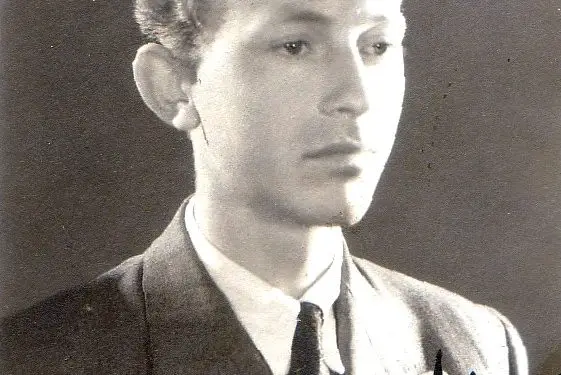
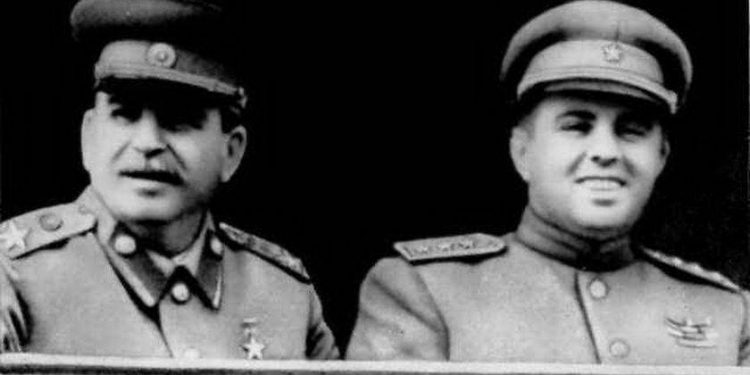
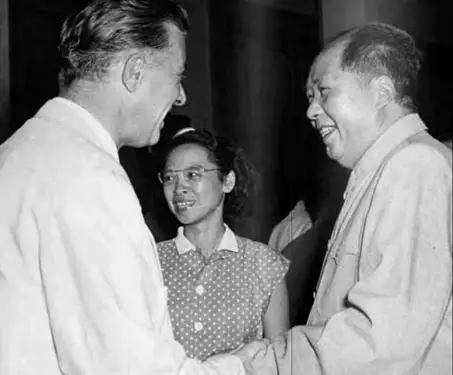
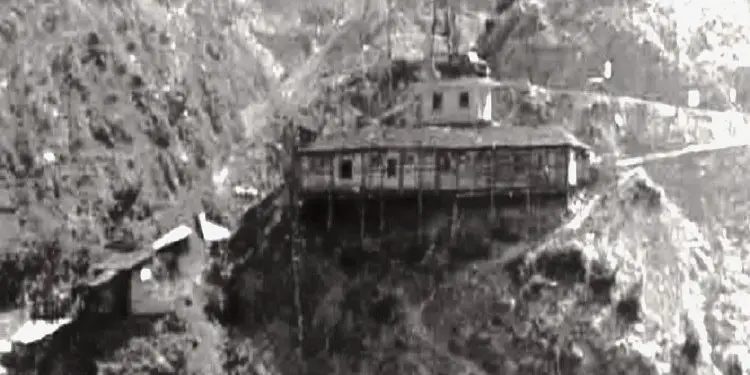
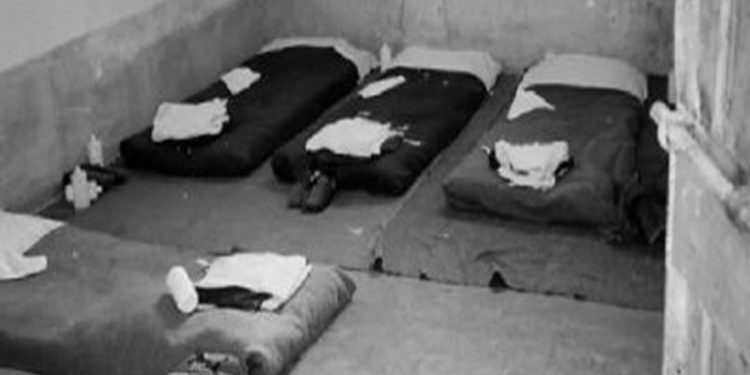
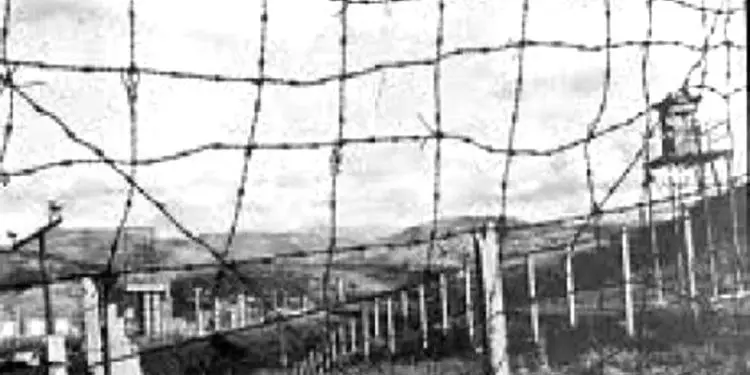
![“The ensemble, led by saxophonist M. Murthi, violinist M. Tare, [with] S. Reka on accordion and piano, [and] saxophonist S. Selmani, were…”/ The unknown history of the “Dajti” orchestra during the communist regime.](https://memorie.al/wp-content/uploads/2026/02/admin-ajax-3-350x250.jpg)
![“In an attempt to rescue one another, 10 workers were poisoned, but besides the brigadier, [another] 6 also died…”/ The secret document of June 11, 1979, is revealed, regarding the deaths of 6 employees at the Metallurgy Plant.](https://memorie.al/wp-content/uploads/2026/02/maxresdefault-350x250.jpg)




